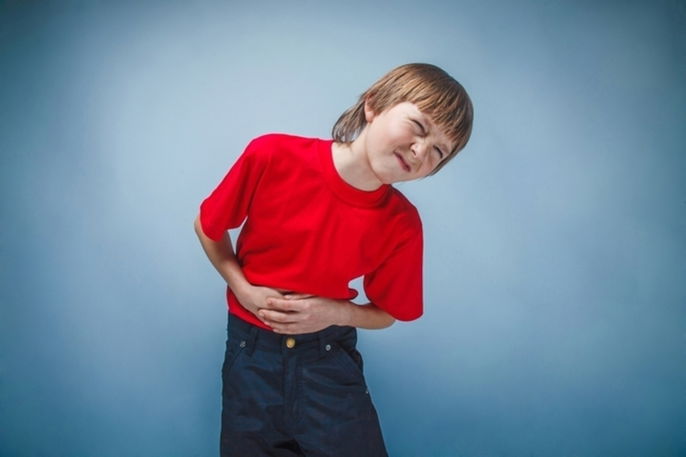Vomiting and diarrhea can be a sign of food poisoning, from consuming contaminated food or water. It can also be medication side effect. Respiratory infections, like COVID-19, may even cause gastrointestinal symptoms in some people.
Depending on the cause, some people may additionally experience symptoms like fever, chest pain, shortness of breath and weakness. Therefore, it is important to identify the specific cause to ensure the most appropriate treatment.
With vomiting and diarrhea, rest is highly advised, as well as a light diet with plenty of fluid to prevent dehydration. Cases of very intense vomiting and diarrhea should be treated with electrolyte replacements, taken every hour to prevent electrolyte losses.

Common causes
Vomiting and diarrhea can occur for the following reasons:
1. Gastroenteritis
Gastroenteritis is the most common cause of vomiting diarrhea. It occurs with intestinal inflammation caused by a virus, bacteria or parasites that can enter the body through contaminated water or food. It is associated with symptoms like intense diarrhea, nausea, vomiting and general malaise.
How to treat: Rest and plenty of fluids are highly advised to prevent excessive fluid and salt losses. Very intense or very frequent vomiting and diarrhea should be treated with fluid and salt replacement, which can be done orally or with IV solutions. It is also important to maintain a light, easy-to-digest diet, and to prevent using anti-diarrhea medication.
2. COVID-19
COVID-19 is a respiratory infection caused by a virus, however some people may present with gastrointestinal symptoms, like diarrhea and vomiting. This occurs because COVID-19 can multiply in the intestinal cells, causing GI symptoms.
How to treat: If you suspect you may have COVID-19, you should complete testing to confirm it and remain in isolation as directed by your public authority guidelines. Once confirmed, you should rest, maintain and light diet and drink plenty of fluid. If you have any respiratory symptoms, you should seek medical attention to ensure adequate lung functioning and more targeted treatment.
3. Food poisoning
Food poisoning occurs when food is contaminated with toxins produced by microorganisms. It leads to symptoms within a few hours of consumption. The main symptoms of food poisoning are general malaise, diarrhea, nausea and vomiting, in addition to dehydration in more serious cases. Learn more about symptoms associated with food poisoning and how it is treated.
How to treat: For a quick recovery, it is important to ensure adequate fluid intake and to replace any lost electrolytes as needed. You should avoid taking any anti-diarrhea medication, as the body needs to naturally eliminate the toxin through stool. In some cases, the doctor may consider prescribing antibiotics. Read more about home remedies for food poisoning to relieve symptoms naturally.
4. Medication side-effects
Some medication, especially antibiotics, can alter intestinal flora and cause vomiting and diarrhea as a side effect.
How to treat: You should report any side-effects to your prescriber, who may consider discontinuing the medication or swapping to an alternative.
What to eat with vomiting and diarrhea
If you have vomiting and diarrhea, you are advised to maintain a light and easy-to-digest diet. You should opt for boiled foods in small servings, as these tend to be easier for the body to breakdown. some options to eat include:
- Cooked rice and carrots
- Boiled white meats, like turkey, chicken and fish
- Peeled or boiled fruits, like apple, pear or banana
- Vegetable soups, chicken soup or broths
You should avoid eating raw food, fiber-rich foot or fatty food. These can further promote the gut and worsen vomiting and diarrhea. Learn more about home remedies for diarrhea that you can take while recovering. You can resume your normal diet after 24 hours of no symptoms.
You can also consider eating more probiotic food, to promote regular intestinal function and relieve vomiting and diarrhea. Check out a list of probiotic foods and the benefits of eating them.






























